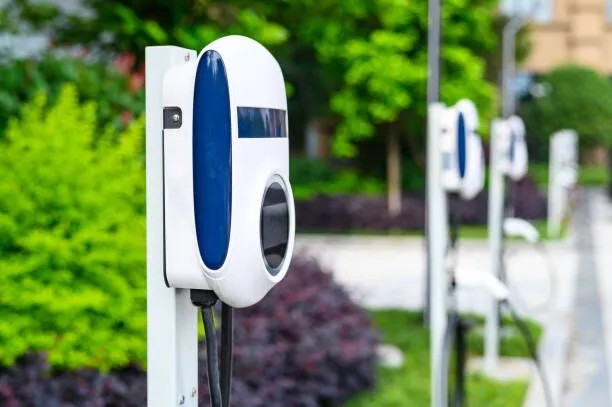


EV Charging Stations for Healthcare Facilities: A New Standard for Patient-Centered Sustainability
Charging Toward a Healthier Future
As a leading EV charger manufacturer in China, LiCB Charge delivers dependable AC and DC electric vehicle charging stations along with comprehensive charging solutions.
As electric vehicles (EVs) become more mainstream, healthcare facilities—hospitals, clinics, and long-term care centers—are uniquely positioned to support the shift to cleaner, more sustainable transportation. Installing EV charging stations is more than a convenience; it reflects a commitment to environmental responsibility, staff support, and enhanced patient experience.
Meeting Evolving Expectations
With growing EV adoption, healthcare staff and visitors increasingly expect access to charging stations. Medical professionals working long shifts benefit from reliable on-site charging, while patients and families gain peace of mind during visits. Providing this service demonstrates a hospital’s awareness of modern mobility needs and its dedication to comfort and accessibility.
Leading Community Sustainability
Hospitals are often central pillars in their communities. By embracing EV infrastructure, they model sustainability for schools, businesses, and local governments. This proactive step sends a clear message: the institution is committed to health in every form—human and environmental.
Preparing for Tomorrow
As governments phase out combustion vehicles and automakers pivot to EVs, forward-looking healthcare providers are preparing now. Installing charging stations ensures they stay relevant in a changing transportation landscape and meet regulatory, operational, and community expectations.
Key Benefits for Healthcare Facilities
Improved Patient and Visitor Experience
EV chargers offer an added layer of care, especially during long or stressful visits. Outpatient centers and clinics benefit as well—patients can charge while attending appointments.
Enhanced Staff Support
Workplace charging is a practical perk that can improve morale, retention, and recruitment—particularly during ongoing healthcare labor shortages. It also supports employees making eco-conscious choices.
Financial and Operational Gains
Hospitals can generate revenue through public charging or reduce fleet costs by switching to electric maintenance or emergency vehicles. Grants and incentives are often available to offset installation costs, and integrating chargers with smart systems or solar panels can reduce utility bills.
Community Engagement and Education
Hospitals can use EV infrastructure as a platform to promote clean energy. Hosting EV demos, workshops, or sustainability events strengthens ties with the public and builds the hospital’s reputation as a climate-conscious leader.
Strategic Deployment Across the Facility
Staff Parking: Chargers in employee-only zones, managed with access control and shift-based energy optimization.
Visitor Parking: Visible, easy-to-use chargers with signage and possible discounts for patients undergoing extended treatment.
Fleet and Emergency Use: High-capacity Level 3 chargers to support electric ambulances and service vehicles.
Renewable Integration: Pairing chargers with solar panels or storage systems for efficiency and resilience.
Overcoming Challenges
EV infrastructure requires planning. Hospitals must assess electrical capacity, manage costs via grants or partnerships, and ensure cybersecurity. Smart charging systems also offer data insights for future scaling and maintenance.
Conclusion: A Smarter Path to a Healthier Planet
By adopting EV charging stations, healthcare institutions extend their healing mission to the environment. It’s a strategic, compassionate step toward a cleaner, more resilient future—setting an example that others can follow.
